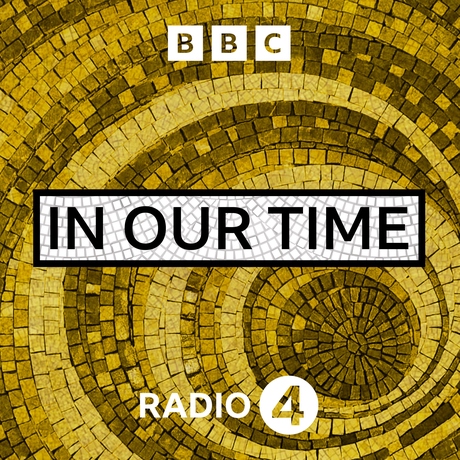
In Our Time
BBC Radio 4
Melvyn Bragg and guests discuss the ideas, people and events that have shaped our world.

BBC Radio 4
Melvyn Bragg and guests discuss the ideas, people and events that have shaped our world.
No reviews yet, be the first!

Melvyn Bragg and guests discuss the revolt that broke out in 1871 in Algeria against French rule, spreading over hundreds of miles and countless towns and villages before being brutally suppressed. It

Melvyn Bragg and guests discuss the German physicist who, at the age of 23 and while still a student, effectively created quantum mechanics for which he later won the Nobel Prize. Werner Heisenberg mad

Melvyn Bragg and guests discuss the infamous assault of an army of the Holy Roman Emperor on the city of Rome in 1527. The troops soon broke through the walls of this holy city and, with their leader s

Melvyn Bragg and guests discuss Lewis Carroll's book which first appeared in print in 1865 with illustrations by John Tenniel. It has since become one of the best known works in English, captivating re

Melvyn Bragg and guests discuss some of the chemical signals coursing through our bodies throughout our lives, produced in separate areas and spreading via the bloodstream. We call these 'hormones' and

Melvyn Bragg and guests discuss the Hanseatic League or Hansa which dominated North European trade in the medieval period. With a trading network that stretched from Iceland to Novgorod via London and

Melvyn Bragg and guests discuss the idea that some kind of consciousness is present not just in our human brains but throughout the universe, right down to cells or even electrons. This is panpsychism

Melvyn Bragg and guests discuss the woman who inspired one of the best known artefacts from ancient Egypt. The Bust of Nefertiti is multicoloured and symmetrical, about 49cm/18" high and, despite the m

Melvyn Bragg and guests discuss Nicolas de Condorcet (1743-94), known as the Last of the Philosophes, the intellectuals in the French Enlightenment who sought to apply their learning to solving the pro

Melvyn Bragg and guests discuss one of Shakespeare’s great comedies, which plays in the space between marriage, love and desire. By convention a wedding means a happy ending and here there are three,

Melvyn Bragg and guests discuss the Dutch artist famous for starry nights and sunflowers, self portraits and simple chairs. These are images known the world over, and Vincent van Gogh (1853-1890) paint

Melvyn Bragg and guests discuss the Roman emperor Tiberius. When he was born in 42BC, there was little prospect of him ever becoming Emperor of Rome. Firstly, Rome was still a Republic and there had no

Melvyn Bragg and guests discuss one of the most influential theologians of the twentieth century. Karl Barth (1886 - 1968) rejected the liberal theology of his time which, he argued, used the Bible and

Melvyn Bragg and guests discuss Poe (1809-1849), the American author who is famous for his Gothic tales of horror, madness and the dark interiors of the mind, such as The Fall of the House of Usher and

Melvyn Bragg and guests discuss Marguerite, Queen of Navarre (1492 – 1549), author of the Heptaméron, a major literary landmark in the French Renaissance. Published after her death, The Heptaméron

Melvyn Bragg and guests discuss the most influential work of Thorstein Veblen (1857-1929). In 1899, during America’s Gilded Age, Veblen wrote The Theory of the Leisure Class as a reminder that all th

Melvyn Bragg and guests discuss the North African privateers who, until their demise in the nineteenth century, were a source of great pride and wealth in their home ports, where they sold the people a

Melvyn Bragg and guests discuss Aristotle's ideas on what happiness means and how to live a good life. Aristotle (384-322BC) explored these almost two and a half thousand years ago in what became known

Melvyn Bragg and guests discuss Emile Zola's greatest literary success, his thirteenth novel in a series exploring the extended Rougon-Macquart family. The relative here is Etienne Lantier, already kno

Melvyn Bragg and guests discuss the anchoress and mystic who, in the late fourteenth century, wrote about her visions of Christ suffering, in a work since known as Revelations of Divine Love. She is pr